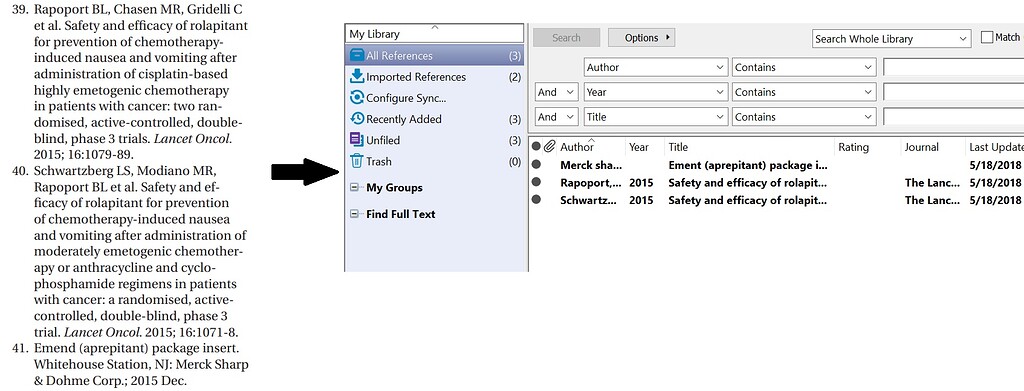首页降低以下代码复杂度n=int(input().strip()) def fun(n): if n==1 or n==2: return 1 elif n==3: return 2 else: return fun(n-1)+fun(n-3) print(fun(n))
降低以下代码复杂度n=int(input().strip()) def fun(n): if n==1 or n==2: return 1 elif n==3: return 2 else: return fun(n-1)+fun(n-3) print(fun(n))
时间: 2024-02-19 10:57:55 浏览: 93
可以使用记忆化搜索来优化这段代码,避免重复计算。具体来说,可以使用一个字典来存储已经计算过的值,避免重复递归。
具体代码如下所示:
```python
n = int(input().strip())
# 利用字典存储已经计算过的值
memo = {}
def fun(n):
if n == 1 or n == 2:
return 1
elif n == 3:
return 2
# 如果已经计算过,直接返回结果
if n in memo:
return memo[n]
# 否则递归计算
result = fun(n - 1) + fun(n - 3)
# 将结果存入字典
memo[n] = result
return result
print(fun(n))
```
使用记忆化搜索后,代码的复杂度将大大降低。
阅读全文
CSDN会员
开通CSDN年卡参与万元壕礼抽奖
大家在看
2_JFM7VX690T型SRAM型现场可编程门阵列技术手册.pdf
复旦微国产大规模FPGA JFM7VX690T datasheet 手册 资料
网络信息系统应急预案-网上银行业务持续性计划与应急预案
包含4份应急预案
网络信息系统应急预案.doc
信息系统应急预案.DOCX
信息系统(系统瘫痪)应急预案.doc
网上银行业务持续性计划与应急预案.doc
RK eMMC Support List
RK eMMC Support List
DAQ97-90002.pdf
SCPI指令集 详细介绍(安捷伦)
毕业设计&课设-MATLAB的光场工具箱.zip
matlab算法,工具源码,适合毕业设计、课程设计作业,所有源码均经过严格测试,可以直接运行,可以放心下载使用。有任何使用问题欢迎随时与博主沟通,第一时间进行解答!
matlab算法,工具源码,适合毕业设计、课程设计作业,所有源码均经过严格测试,可以直接运行,可以放心下载使用。有任何使用问题欢迎随时与博主沟通,第一时间进行解答!
matlab算法,工具源码,适合毕业设计、课程设计作业,所有源码均经过严格测试,可以直接运行,可以放心下载使用。有任何使用问题欢迎随时与博主沟通,第一时间进行解答!
matlab算法,工具源码,适合毕业设计、课程设计作业,所有源码均经过严格测试,可以直接运行,可以放心下载使用。有任何使用问题欢迎随时与博主沟通,第一时间进行解答!
matlab算法,工具源码,适合毕业设计、课程设计作业,所有源码均经过严格测试,可以直接运行,可以放心下载使用。有任何使用问题欢迎随时与博主沟通,第一时间进行解答!
matlab算法,工具源码,适合毕业设计、课程设计作业,所有源码均经过严格测试,可以直接运行,可以放心下载使用。有任何使用问题欢迎随
最新推荐
Python调试器vardbg:动画可视化算法流程
资源摘要信息:"vardbg是一个专为Python设计的简单调试器和事件探查器,它通过生成程序流程的动画可视化效果,增强了算法学习的直观性和互动性。该工具适用于Python 3.6及以上版本,并且由于使用了f-string特性,它要求用户的Python环境必须是3.6或更高。 vardbg是在2019年Google Code-in竞赛期间为CCExtractor项目开发而创建的,它能够跟踪每个变量及其内容的历史记录,并且还能跟踪容器内的元素(如列表、集合和字典等),以便用户能够深入了解程序的状态变化。"
知识点详细说明:
1. Python调试器(Debugger):调试器是开发过程中用于查找和修复代码错误的工具。 vardbg作为一个Python调试器,它为开发者提供了跟踪代码执行、检查变量状态和控制程序流程的能力。通过运行时监控程序,调试器可以发现程序运行时出现的逻辑错误、语法错误和运行时错误等。
2. 事件探查器(Event Profiler):事件探查器是对程序中的特定事件或操作进行记录和分析的工具。 vardbg作为一个事件探查器,可以监控程序中的关键事件,例如变量值的变化和函数调用等,从而帮助开发者理解和优化代码执行路径。
3. 动画可视化效果:vardbg通过生成程序流程的动画可视化图像,使得算法的执行过程变得生动和直观。这对于学习算法的初学者来说尤其有用,因为可视化手段可以提高他们对算法逻辑的理解,并帮助他们更快地掌握复杂的概念。
4. Python版本兼容性:由于vardbg使用了Python的f-string功能,因此它仅兼容Python 3.6及以上版本。f-string是一种格式化字符串的快捷语法,提供了更清晰和简洁的字符串表达方式。开发者在使用vardbg之前,必须确保他们的Python环境满足版本要求。
5. 项目背景和应用:vardbg是在2019年的Google Code-in竞赛中为CCExtractor项目开发的。Google Code-in是一项面向13到17岁的学生开放的竞赛活动,旨在鼓励他们参与开源项目。CCExtractor是一个用于从DVD、Blu-Ray和视频文件中提取字幕信息的软件。vardbg的开发过程中,该项目不仅为学生提供了一个实际开发经验的机会,也展示了学生对开源软件贡献的可能性。
6. 特定功能介绍:
- 跟踪变量历史记录:vardbg能够追踪每个变量在程序执行过程中的历史记录,使得开发者可以查看变量值的任何历史状态,帮助诊断问题所在。
- 容器元素跟踪:vardbg支持跟踪容器类型对象内部元素的变化,包括列表、集合和字典等数据结构。这有助于开发者理解数据结构在算法执行过程中的具体变化情况。
通过上述知识点的详细介绍,可以了解到vardbg作为一个针对Python的调试和探查工具,在提供程序流程动画可视化效果的同时,还通过跟踪变量和容器元素等功能,为Python学习者和开发者提供了强大的支持。它不仅提高了学习算法的效率,也为处理和优化代码提供了强大的辅助功能。
管理建模和仿真的文件
管理Boualem Benatallah引用此版本:布阿利姆·贝纳塔拉。管理建模和仿真。约瑟夫-傅立叶大学-格勒诺布尔第一大学,1996年。法语。NNT:电话:00345357HAL ID:电话:00345357https://theses.hal.science/tel-003453572008年12月9日提交HAL是一个多学科的开放存取档案馆,用于存放和传播科学研究论文,无论它们是否被公开。论文可以来自法国或国外的教学和研究机构,也可以来自公共或私人研究中心。L’archive ouverte pluridisciplinaire
【IT设备维保管理入门指南】:如何制定有效的维护计划,提升设备性能与寿命

# 摘要
本文全面探讨了IT设备维保管理的各个方面,从理论基础到实践案例,再到技术革新和未来展望。首先概述了维保计划的重要性,强调了其在延长设备生命周期和提升性能稳定性方面的作用。接着,文中详细论述了维保计划的制定原则,包括预防性维护、设备分类及成本效益分析等。通过分析不同行业的实践案例,本文揭示了成功维保计划的关键因素,并提出了效果评估与改进的策略。随后,探讨了性能监
python爬取网页链接,url = “https://koubei.16888.com/57233/0-0-0-0”
在Python中,使用如`requests`库来发送HTTP请求并抓取网页链接是比较常见的做法。以下是如何使用`requests`和BeautifulSoup库(用于解析HTML)来爬取给定URL上的信息:
首先,确保已安装`requests`和`beautifulsoup4`库,如果未安装可以使用以下命令安装:
```bash
pip install requests beautifulsoup4
```
然后,你可以编写以下Python脚本来爬取指定URL的内容:
```python
import requests
from bs4 import BeautifulSoup
# 定义要
掌握Web开发:Udacity天气日记项目解析
资源摘要信息: "Udacity-Weather-Journal:Web开发路线的Udacity纳米度-项目2"
知识点:
1. Udacity:Udacity是一个提供在线课程和纳米学位项目的教育平台,涉及IT、数据科学、人工智能、机器学习等众多领域。纳米学位是Udacity提供的一种专业课程认证,通过一系列课程的学习和实践项目,帮助学习者掌握专业技能,并提供就业支持。
2. Web开发路线:Web开发是构建网页和网站的应用程序的过程。学习Web开发通常包括前端开发(涉及HTML、CSS、JavaScript等技术)和后端开发(可能涉及各种服务器端语言和数据库技术)的学习。Web开发路线指的是在学习过程中所遵循的路径和进度安排。
3. 纳米度项目2:在Udacity提供的学习路径中,纳米学位项目通常是实践导向的任务,让学生能够在真实世界的情境中应用所学的知识。这些项目往往需要学生完成一系列具体任务,如开发一个网站、创建一个应用程序等,以此来展示他们所掌握的技能和知识。
4. Udacity-Weather-Journal项目:这个项目听起来是关于创建一个天气日记的Web应用程序。在完成这个项目时,学习者可能需要运用他们关于Web开发的知识,包括前端设计(使用HTML、CSS、Bootstrap等框架设计用户界面),使用JavaScript进行用户交互处理,以及可能的后端开发(如果需要保存用户数据,可能会使用数据库技术如SQLite、MySQL或MongoDB)。
5. 压缩包子文件:这里提到的“压缩包子文件”可能是一个笔误或误解,它可能实际上是指“压缩包文件”(Zip archive)。在文件名称列表中的“Udacity-Weather-journal-master”可能意味着该项目的所有相关文件都被压缩在一个名为“Udacity-Weather-journal-master.zip”的压缩文件中,这通常用于将项目文件归档和传输。
6. 文件名称列表:文件名称列表提供了项目文件的结构概览,它可能包含HTML、CSS、JavaScript文件以及可能的服务器端文件(如Python、Node.js文件等),此外还可能包括项目依赖文件(如package.json、requirements.txt等),以及项目文档和说明。
7. 实际项目开发流程:在开发像Udacity-Weather-Journal这样的项目时,学习者可能需要经历需求分析、设计、编码、测试和部署等阶段。在每个阶段,他们需要应用他们所学的理论知识,并解决在项目开发过程中遇到的实际问题。
8. 技术栈:虽然具体的技术栈未在标题和描述中明确提及,但一个典型的Web开发项目可能涉及的技术包括但不限于HTML5、CSS3、JavaScript(可能使用框架如React.js、Angular.js或Vue.js)、Bootstrap、Node.js、Express.js、数据库技术(如上所述),以及版本控制系统如Git。
9. 学习成果展示:完成这样的项目后,学习者将拥有一个可部署的Web应用程序,以及一个展示他们技术能力的项目案例,这些对于未来的求职和职业发展都是有价值的。
10. 知识点整合:在进行Udacity-Weather-Journal项目时,学习者需要将所学的多个知识点融合在一起,包括前端设计、用户体验、后端逻辑处理、数据存储和检索、以及可能的API调用等。
总结来说,Udacity-Weather-Journal项目是Udacity Web开发纳米学位课程中的一个重要实践环节,它要求学习者运用他们所学到的前端和后端开发技能,完成一个具体的Web应用程序项目。通过完成这样的项目,学习者能够将理论知识转化为实践经验,并为他们未来在IT行业的职业发展打下坚实的基础。
"互动学习:行动中的多样性与论文攻读经历"
多样性她- 事实上SCI NCES你的时间表ECOLEDO C Tora SC和NCESPOUR l’Ingén学习互动,互动学习以行动为中心的强化学习学会互动,互动学习,以行动为中心的强化学习计算机科学博士论文于2021年9月28日在Villeneuve d'Asq公开支持马修·瑟林评审团主席法布里斯·勒菲弗尔阿维尼翁大学教授论文指导奥利维尔·皮耶昆谷歌研究教授:智囊团论文联合主任菲利普·普雷教授,大学。里尔/CRISTAL/因里亚报告员奥利维耶·西格德索邦大学报告员卢多维奇·德诺耶教授,Facebook /索邦大学审查员越南圣迈IMT Atlantic高级讲师邀请弗洛里安·斯特鲁布博士,Deepmind对于那些及时看到自己错误的人...3谢谢你首先,我要感谢我的两位博士生导师Olivier和Philippe。奥利维尔,"站在巨人的肩膀上"这句话对你来说完全有意义了。从科学上讲,你知道在这篇论文的(许多)错误中,你是我可以依
【文献整理高效法】:ENDNOTE软件实用功能及快捷操作揭秘

# 摘要
本文综合探讨了ENDNOTE在文献整理和管理中的作用及其高效操作技巧。首先介绍了文献整理的重要性和ENDNOTE软件的简介,随后深入解析了ENDNOTE的基本功能,包括文献信息的导入与管理、引用和参考文献的生成,以及文献搜索与数据库集成。接着,本文详细阐述了ENDNOTE的高效操作技巧,涵
在使用SQL创建存储过程时,是否可以在定义输入参数时直接为其赋予初始值?
在使用SQL创建存储过程时,通常可以在定义输入参数时为其赋予初始值。这种做法可以使参数具有默认值,当调用存储过程时,如果没有提供该参数的值,则会使用默认值。以下是一个示例:
```sql
CREATE PROCEDURE MyProcedure
@Param1 INT = 10,
@Param2 NVARCHAR(50) = 'DefaultValue'
AS
BEGIN
-- 存储过程的主体
SELECT @Param1 AS Param1, @Param2 AS Param2
END
```
在这个示例中,`@Param1`和`@Param2`是输入参数
MySQL 5.5.28 64位数据库软件免费下载
资源摘要信息:"mysql 64位.zip"
知识点:
1. MySQL简介:
MySQL是一个流行的关系型数据库管理系统(RDBMS),由瑞典MySQL AB公司开发,目前被Oracle公司所拥有。它使用结构化查询语言(SQL)进行数据库管理,是基于客户端-服务器模型的数据库系统,能够处理拥有上千万条记录的大型数据库。
2. MySQL版本:
标题中提到的“mysql 5.5.28版本”指的是MySQL数据库管理系统的一个具体版本。每个版本号由主版本号、次版本号和修订号组成,通常表示该版本在功能、性能以及稳定性等方面相对于前一个版本的改进。在这个案例中,5.5代表主版本号,28代表修订号。
3. 64位版本:
"64位"指的是软件运行所需的操作系统和处理器支持的位数。64位系统比32位系统能够处理更大的内存和更复杂的应用程序。因此,如果一个软件提供64位版本,则意味着它可以充分利用64位系统的优势,提高程序运行的效率和稳定性。
4. Windows系统:
"Windows系统"指的是微软公司开发的一系列操作系统,其中包括家庭用户广泛使用的Windows XP、Windows 7、Windows 8和Windows 10等。MySQL 5.5.28 64位版本专门为Windows操作系统设计,确保了用户在使用Windows系统时的兼容性和运行效率。
5. 免费开源:
MySQL是一个开源软件,遵循GPL(GNU通用公共许可证),这意味着任何人都可以免费下载、使用、修改和重新分发MySQL。开源特性使得MySQL社区活跃,不断有开发者为其贡献代码,增强了MySQL的功能和稳定性。
6. 数据库存储:
MySQL的最主要功能是数据存储和管理。作为关系型数据库,它将数据存储在表格中,表格之间通过主键和外键进行关联。MySQL支持多种数据类型,例如整型、浮点型、字符型、日期时间型等。通过SQL语句,用户可以创建、查询、更新和删除数据库中的记录。
7. 下载使用:
资源标题中提到“欢迎下载使用”,意味着用户可以免费获取这个MySQL版本。用户可以通过官方网站或其他提供该软件的站点进行下载。下载安装后,用户需要配置数据库环境,然后才能进行数据库设计、开发和管理等工作。
综上所述,该资源为64位版本的MySQL 5.5.28,专为Windows系统设计,用户可以免费下载使用。它是一个功能强大的数据库管理系统,适用于数据存储和管理,尤其适合处理大量数据的场合。用户下载安装该资源后,可以开始使用MySQL提供的丰富功能,包括创建数据库、设计表结构、进行数据查询和维护等操作。
关系数据表示学习
关系数据卢多维奇·多斯桑托斯引用此版本:卢多维奇·多斯桑托斯。关系数据的表示学习机器学习[cs.LG]。皮埃尔和玛丽·居里大学-巴黎第六大学,2017年。英语。NNT:2017PA066480。电话:01803188HAL ID:电话:01803188https://theses.hal.science/tel-01803188提交日期:2018年HAL是一个多学科的开放存取档案馆,用于存放和传播科学研究论文,无论它们是否被公开。论文可以来自法国或国外的教学和研究机构,也可以来自公共或私人研究中心。L’archive ouverte pluridisciplinaireUNIVERSITY PIERRE和 MARIE CURIE计算机科学、电信和电子学博士学院(巴黎)巴黎6号计算机科学实验室D八角形T HESIS关系数据表示学习作者:Ludovic DOS SAntos主管:Patrick GALLINARI联合主管:本杰明·P·伊沃瓦斯基为满足计算机科学博士学位的要求而提交的论文评审团成员:先生蒂埃里·A·退休记者先生尤尼斯·B·恩